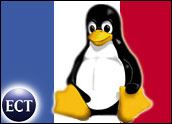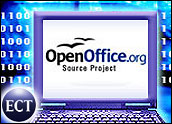
Novell announced Monday that it is consolidating some of its business units in order to concentrate more fully on Linux and identity management.
Four business units have now been made into two, which will also necessitate management changes at the company.
Jeff Hawkins, vice president of Novell’s Linux Business Office, spoke with LinuxInsider about why the company wants to focus more strongly on open source. “Open source offers choice in markets previously dominated by a single vendor,” he said. “It is reliable and secure given its open nature and broad user base.”
Novell’s Unit Shuffle
With the unit consolidation, Novell moves away from its traditional model of selling the NetWare operating system and toward a new plan to sell Linux and server software packages. The company noted that bringing the units together will decrease market overlap.
The Nterprise and SuSE Linux units will be merged, as will the Secure iServices and Resource Management units. The names of the new units have not been released.
Management changes include the appointment of two general managers, David Patrick and David Litwack, who previously reported to the company’s vice chairman and products chief, Chris Stone.
Acquiring Minds
Novell has made other moves toward increasing its Linux activities, most notably with the acquisition of SuSE Linux and Ximian. In July, the company also acquired UK-based Salmon, a services company, in order to develop more consulting expertise around Linux.
“We want to build on the acquisition of SuSE,” Novell UK country manager Steve Brown told LinuxInsider.
He noted that the Linux moves in Europe come at a time when demand for open source there is growing. By combining SuSE technology with consulting services, the company hopes to compete with others — most notably IBM — that have adopted similar strategies.
The recent consolidation of business units should affect Novell’s European operations as well as its U.S. strategies, allowing it to streamline operations and woo Linux customers more effectively.
The company has also noted that its next major Linux move will be a Linux desktop platform that combines SuSE and Ximian technology, expected to be launched in the fall. The consolidated Linux business unit would likely play a role in aggressively promoting the platform.
I.D. Tag
In addition to Linux, Novell will be investigating identity management. The two are not unrelated, Salmon commercial director Simon Ball told LinuxInsider.
“Clients have asked us about identity management as well as Linux,” he said. “Now, we’ll be able to answer questions about how to offer both of those.”
Novell is considered by many analysts to be a leader in the identity management space already. Its foothold was established more firmly in July, when the company announced a federated identity-management infrastructure, code-named Odyssey. The technology allows organizations to distribute identity data among its business partners without sacrificing user privacy.
The extent of the new business unit’s role in developing and selling Odyssey has not been announced yet.
Eyes on the Penguin
Although identity management strategies will be a strong part of Novell’s offering, many are watching too see whether Novell will keep its focus on Linux.
“Novell wants to make sure that everyone understands that we are committed to open source — it’s not just a passing fancy,” said Hawkins.
He pointed to a number of other contributions the company has made in the area, including involvement in YaST, the system management and administration tool for every SuSE Linux distribution.
Hawkins added that the company looks forward to promoting Linux and being involved with open source far into the future. “The open source development model harnesses the power of everyone who participates,” he said. “But mostly what it will take is time.”





















































